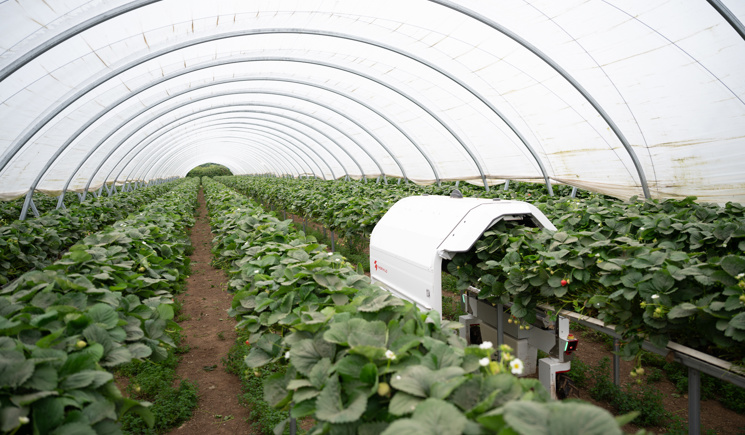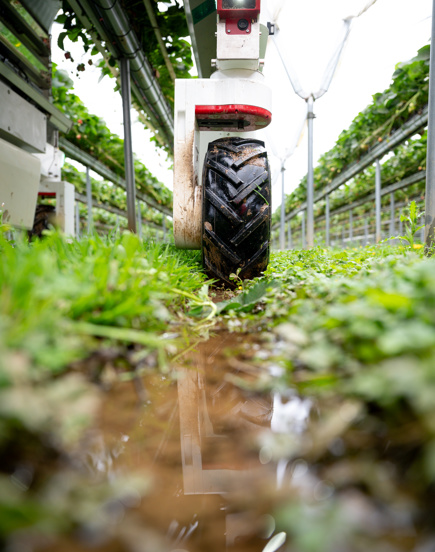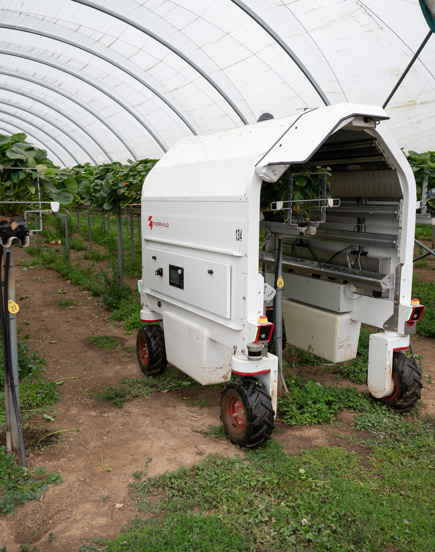Angus Soft Fruits
Fresh from winning the Business Innovation Award at the 2025 Scotland Food & Drink Excellence Awards, Angus Soft Fruits is demonstrating its pioneering spirit across the country. This commitment to innovation is critical for a berry sector facing intensifying climatic pressures.
The 2025 growing season has presented a significant challenge. Record-breaking dry heat accelerated fruit ripening, while overnight fog in the northeast created prolonged periods of dampness and humidity. This combination created ideal conditions for a severe outbreak of powdery mildew – a persistent fungal pathogen that can devastate berry quality and drastically reduce yields.
In response, Angus Soft Fruits’ grower cooperative, Angus Growers, has leveraged its multi-year partnership with Saga Robotics to deploy ‘Thorvald’ autonomous robots as a first line of defence.
Scottish Food & Drink September
When the sun goes down, these robots deliver targeted ultraviolet-C (UVC) light treatment to the berries. The UVC light disrupts the DNA of powdery mildew spores, effectively controlling the disease without the use of traditional fungicides.
The partnership with Saga Robotics is a committed, long-term project. However, the approach is one of integrated pest management, not outright replacement.
As Angela Porchez of Angus Growers explained: "The UV treatment has become an invaluable tool for controlling mildew pressure sustainably and has shown benefits for improving overall plant health and yield."

"However, in a year as challenging as this, where conditions were perfect for the pathogen, we must be pragmatic," Angela continued. "Chemicals remain a necessary last resort to prevent total crop loss when disease pressure becomes unmanageable. The goal of the robotics is to drastically reduce our reliance on them, not to eliminate the option entirely when it’s critical for protecting the harvest."
A key challenge is adapting the innovation to Scotland’s diverse infrastructure. The Thorvald robots are currently effective in larger ‘multi-span’ tunnel systems. To bring the benefits of UVC treatment to all growers, the cooperative is exploring a partnership with a company called Antobot to co-develop a smaller, more agile machine capable of operating within Scotland’s prevalent smaller ‘Seaton’ tunnel systems.
The vision for innovation extends far beyond disease control. Angus is also trialling drone technology for a suite of applications such as precision pollination to improve yields, logistics for transporting light loads, and cleaning polytunnel covers to maximise vital light levels for ripening. This sits alongside long-standing work on carbon audits, renewable energy, and developing 100% recyclable packaging.
Image credit: Kristoffer Skarsgaard

